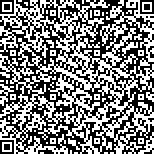| 摘要: |
| [摘要] 目的 探讨儿童哮喘治疗中补充维生素D制剂的应用价值。方法 将136例急性发作期哮喘患儿按随机数字表法分为观察组和对照组,每组68例。两组均给予常规治疗,观察组在常规治疗基础上给予维生素D滴剂800 IU/d口服。治疗12周时,采用儿童哮喘控制测试量表(C-ACT)评价两组患儿哮喘控制情况;比较两组患儿治疗前和治疗12周时第1秒用力呼气容积占预计值百分比(FEV1%)、用力肺活量占预计值百分比(FVC%)以及血清25-(OH)D、总免疫球蛋白E(IgE)和嗜酸细胞阳离子(ECP)水平的变化。结果 治疗12周时,观察组和对照组哮喘控制率分别为88.2%和75.0%,差异有统计学意义(P<0.05),两组患儿FEV1%和FVC%的改善情况差异无统计学意义(P>0.05)。两组血清总IgE和ECP水平均较治疗前显著下降(P<0.01),但观察组显著低于对照组(P<0.05)。两组患儿均未发现明显的药物相关性不良反应。结论 短期小剂量补充维生素D制剂在一定程度上可降低哮喘患儿血清IgE和ECP水平,有利于提高临床控制率,且安全性较好。 |
| 关键词: 维生素D 支气管哮喘 儿童 肺功能 免疫球蛋白 嗜酸细胞阳离子 |
| DOI:10.3969/j.issn.1674-3806.2019.04.13 |
| 分类号:R 725.6 |
| 基金项目: |
|
| Application value of vitamin D supplement in treatment of childhood asthma |
|
HUANG Li-juan, DONG De-xing
|
|
Department of Pediatrics, the People′s Hospital of Nanshan District of Shenzhen City, Guangdong 518052, China
|
| Abstract: |
| [Abstract] Objective To explore the application value of vitamin D supplement in treatment of childhood asthma. Methods One hundred and thirty-six children with acute asthma were randomly divided into observation group(n=68) and control group(n=68). The children in both groups were given routine treatment of asthma, while the children in the observation group were given vitamin D drops 800 IU/d orally on the basis of the routine treatment. After 12 weeks of treatment, the Children′s Asthma Control Test(C-ACT) was used to evaluate asthma control in both groups. The percentages of forced expiratory volume in the first second(FEV1%) and forced vital capacity(FVC%) before and 12 weeks after treatment were compared between the two groups and the changes of serum 25-(OH)D, total IgE and eosinophil cationic protein(ECP) levels were also compared. Results After 12 weeks of treatment, the asthma control rate was 88.2% in the observation group and 75.0% in the control group(P<0.05), but there were no significant differences in the improvements of FEV1% and FVC% between the two groups(P>0.05). The levels of serum total IgE and ECP in both groups after treatment were significantly lower than those before treatment(P<0.01), but those in the observation group were significantly lower than those in the control group(P<0.05). No obvious drug-related adverse reactions were found in the two groups. Conclusion Short-term and low-dose vitamin D supplement may reduce the serum IgE and ECP levels in asthmatic children to some extent. It is beneficial to improve the clinical control rate and has good safety. |
| Key words: Vitamin D Bronchial asthma Children Lung function Immunoglobulin Eosinophil cations protein |

